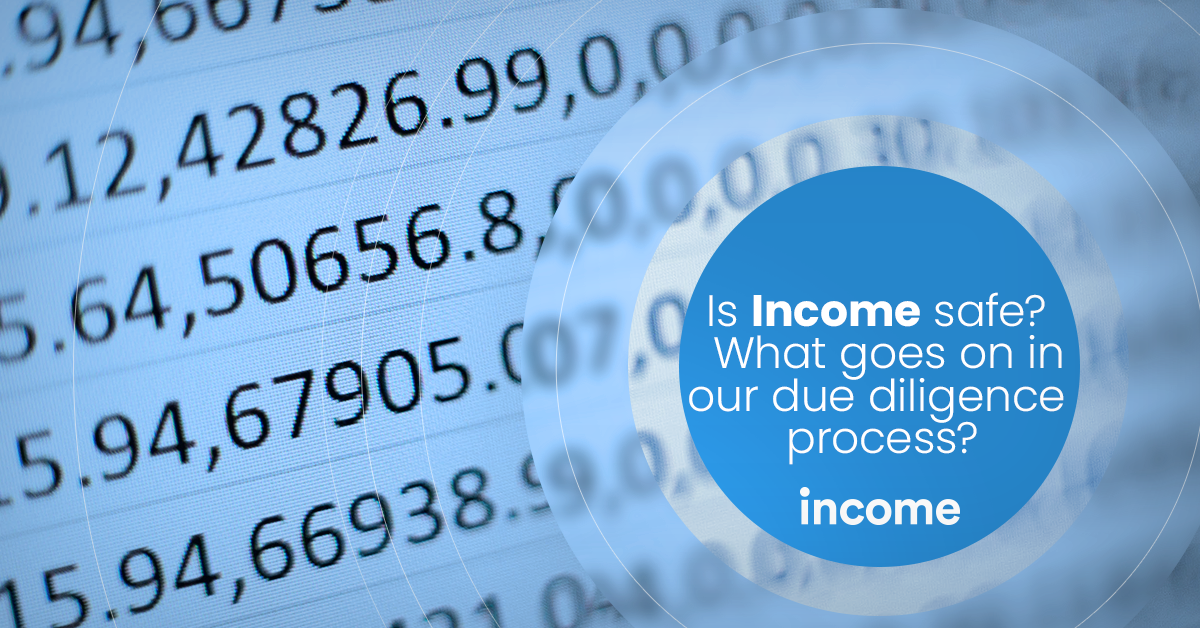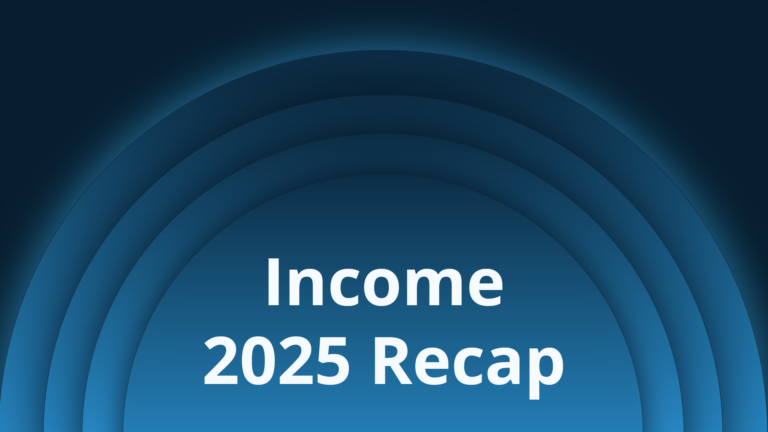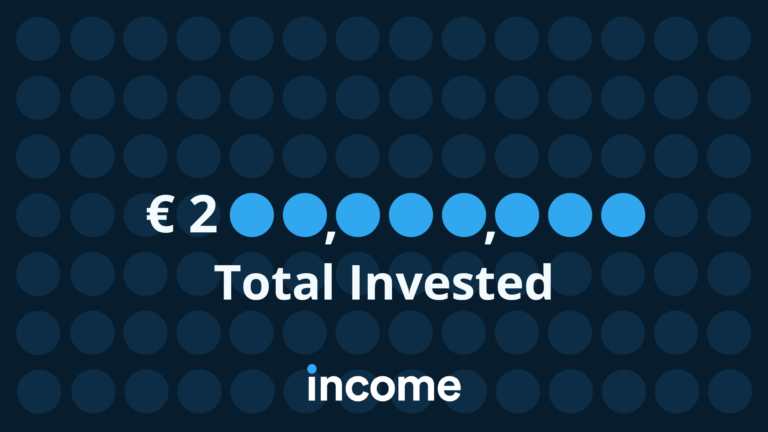Onboarding a new Loan Originator is a heavy work process. A lot goes on in the background that the investors do not see before the loan originator is ready to list its first loan on Income.
One of the critical processes that the Loan Originator goes through during onboarding is due diligence. The due diligence process is the primary way we ensure that the loans listed on Income for investment are as safe as possible and that the Loan Originator conducts its business professionally. We do our due diligence in three categories: business, legal and financial to ensure that the Loan Originators are running a legitimate company.
Due diligence in the investment world is a standard process before investing, and also other P2P platforms like Mintos and PeerBerry do due diligence in their specific way. What sets Income apart from other marketplaces is the concept of “junior share,” which acts as a first loss buffer in case of Loan Originator default (you can read more about it here).
Due to the “junior share” concept, we focus heavily on financial due diligence, which means analyzing the historical loan book of the originator, making sure the quality of origination (profitability, non-performing loans, etc.) is sufficient. Financial due diligence enables us to set the “junior share” to the correct level so that the cashflow buffer in case of a LO default would be enough to protect investors 1:1.
To help you better understand what we mean by and do in the financial due diligence process, we asked our Senior Financial Analyst Ekaterina a few questions.
Due Diligence, What is it?
Due diligence is an investigation performed to confirm facts and details of a matter under consideration. In the financial world, this is a required procedure conducted before entering into a transaction with another party. In plain English, due diligence means doing your homework of a rigorous analysis of the company’s financial records. Before accepting a new LO, we perform due diligence to verify that the financial performance of the LO is solid and the loan book is strong enough.
Why do we need due diligence?
We care for our investors and want them to be sure of the safety of the LOs that we onboard.
What does the due diligence process look like for the loan originators?
We pre-screen the potential LOs to choose the significant market share and future perspectives. With those who meet our requirements, we begin the due diligence process.
First, we perform a kick-off call with the management to discuss the product and go through the two most essential processes in the lending business, i.e., underwriting and collection. Having gained the understanding, we initiate a multidimensional loan book analysis that usually entails several rounds of follow-up questions to the LO team. We also perform a financial analysis when our team looks closely into the financial statements of at least two years, calculates and analyses the financial ratios with particular focus on liquidity and solvency, and concludes on the company’s overall financial standing. A final procedure called “Sanity and Completeness Check” requires the LO to provide us with the bank proof for the money disbursed and received to assure the loan book data is actual and reliable.
The result of the work is to devise the “Advance Rate” and the “Junior Share” and eventually offer it to the LO.
What are the main red flags you are looking for when doing the due diligence?
There is no predetermined checklist, as we prefer to keep the process flexible, but there are some red flags that we specifically look for:
- low Repayment Coefficient of the loans (the loan portfolio is not producing enough cash to support the operation)
- inflated assets and poor equity position, which would be indicative of a potential insolvency issue;
- inadequately designed or manual processes within the company that might produce errors;
- insufficient data quality of the loan book;
- inability to provide bank proof for the collected money;
- the product features against the legislation (e.g., loans issued with the interest exceeding the interest rate cap);
How do you determine that an LO has “good loans”?
Generally speaking, LO is required to have at least sufficient Repayment Coefficient to provide our investors with the promised interest on invested money.
How do you determine the “Junior Share” in a loan?
Junior Share is the product of the Repayment Coefficient and all the risks identified during the due diligence course. The process of setting the “Junior Share” is unique to each LO as we need to consider market and Loan Originator specific issues.
How many LO’s have we declined to date?
Our due diligence team declined only one at the final stage (not enough of a repayment coefficient and improper banking reconciliation system) and a couple of others at the initial stage or during the due diligence process.
This article highlights just an overview of the due diligence process before onboarding a new LO. Still, we keep a close eye on their loan book performance while listing loans up for investment to ensure we are correct in devising the security features we hold for our investors. If necessary, our financial due diligence team will amend those.




